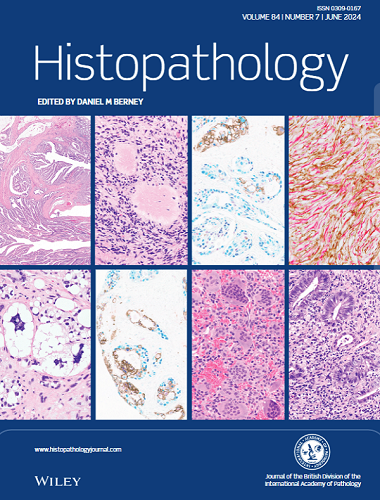Initiation of molecular testing of endometrial carcinomas in a population-based setting: practical considerations and pitfalls
Abstract
Aims
Since the publication of The Cancer Genome Atlas (TCGA) molecular Classification of endometrial carcinomas in 2013, multiple studies have demonstrated the prognostic and therapeutic importance of this. However, there is great variability on whether and how this is undertaken in different institutions, and this is often dependent on resources and availability of molecular testing. Points of controversy include whether molecular classification is needed on all endometrial carcinomas and whether pure molecular testing is undertaken or a surrogate such as the ProMisE (Proactive Molecular Risk Classifier for Endometrial Cancer) Classifier. Herein we report our experience instigating molecular classification of endometrial carcinomas in Northern Ireland.
Methods and Results
From 1st March 2023, all endometrial carcinomas diagnosed on biopsy in the four pathology laboratories in Northern Ireland were referred to the central molecular pathology laboratory for genomic analysis using a custom next-generation sequencing (NGS) panel; the NGS panel included the entire coding regions of polymerase epsilon (POLE) and TP53 genes, as well as microsatellite instability (MSI) analysis. All cases also underwent immunohistochemical staining with oestrogen receptor (ER), p53, and the mismatch repair (MMR) proteins MLH1, PMS2, MSH2, and MSH6. The molecular results were available by the time of surgery (if a hysterectomy was performed) allowing integration into the final pathology report where a TCGA molecular type was assigned. Two hundred and sixty-seven endometrial carcinomas underwent molecular testing; in five cases, there was insufficient material for testing, leaving 262 cases. The TCGA groups were POLEmut (19; 7.3%), MMRd (63; 24%), p53abn (62; 23.7%), and no specific molecular profile (NSMP) 118 (45%). Seventeen tumours (6.5%) were “multiple-classifiers”: five POLEmut-p53abn, two POLEmut-MMRd, one POLE-MMRd-p53abn (all included in the POLEmut TCGA group), and nine MMRd-p53abn (included in the MMRd group).
Conclusion
This represents one of the first population-based studies investigating the prevalence of the different TCGA molecular groups of endometrial carcinomas in an unselected population. Performing molecular testing on biopsies enables management to be tailored to the molecular group and allows integration of the TCGA group into the report of the final resection specimen. We hope our experience will facilitate other laboratories in undertaking TCGA molecular classification.


 求助内容:
求助内容: 应助结果提醒方式:
应助结果提醒方式:


